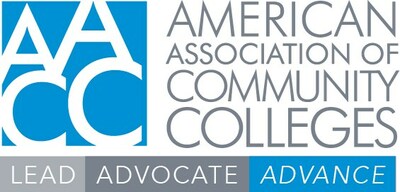Our nation must advance industries of the future or risk losing the race for the 21st century
Press Releases
Mar 08, 2024
PALATINE, Ill., March 8, 2024 /PRNewswire/ —
The following is written by Avis Proctor, Ed.D., President, Harper College.
Our nation finds itself facing a modern-day Sputnik moment.
Americans were shocked in 1957 with the news the Soviet Union had launched the first artificial satellite into the Earth’s orbit. It was a disheartening defeat that intensified ideological and political tension between the world’s two superpowers and proved a critical wake-up call for the United States.
Today, the U.S. risks losing the race in global competitiveness, innovation and national security if we fail to double down in our commitment to accelerating technological innovation for a strong future.
One of the key vehicles to ensuring a more secure and prosperous future is the $250 billion CHIPS and Science Act of 2022, which researchers and technology leaders regard as one of the nation’s most significant innovation bills in decades, according to the nonprofit Brookings Institution. This historic investment seeks to strengthen U.S. competitiveness in areas including artificial intelligence (AI), smart manufacturing, semiconductors, quantum computing and clean energy while diversifying the STEM workforce.
It’s also a once-in-a-generation workforce development opportunity for the nation’s advanced industries to address their glaring needs for STEM and technician talent.
Consider this workforce gap: The Semiconductor Industry Association (SIA) and Oxford Economics estimate that of the 3.8 million additional STEM or technical jobs that could be created in the U.S. by 2030, 1.4 million risk going unfilled.
Of unfilled new positions, a sizeable portion are skilled technicians with two-year degrees and additional on-the-job “earn and learn” training such as apprenticeships.
If we don’t leverage this landmark opportunity, we will lose the race for the 21st century.
Harper College is working to meet this pivotal moment in a variety of ways. The Biden-Harris administration recently designated 31 innovation and technology hubs across the country to catalyze investment in innovative technologies. For the Chicago Metropolitan Statistical Area, Harper has partnered with City Colleges of Chicago to jointly develop a proposal, “From Community to Quantum,” which would bring together partners to develop the education and training pathways leading to a skilled quantum workforce.
If you don’t understand what quantum technology is or means, you’re certainly not alone. What’s most important is to understand quantum’s transformational implications on economic growth, national security, job creation and any number of real-world applications.
Another way Harper is working to meet regional employer demands for today’s and tomorrow’s skilled workforce is through its Innovation Accelerator, which we launched in 2022 to streamline and accelerate the development of programs, particularly in emerging technologies. To begin, we are developing accelerated career pathways in cybersecurity, AI and cloud infrastructure.
The Innovation Accelerator analyzes labor market data and adopts the National Science Foundation-recognized Business and Industry Leadership Team (BILT) advisory council model to ensure new programs meet the needs of both students and employers. Members represent employers such as Google, Microsoft and Amazon Web Services.
As a recipient of National Science Foundation funding via the Enabling Partnerships to Increase Innovation Capacity grant (EPIIC), Harper serves as the lead institution of a consortium that’s working to build external partnerships for nimble development of programs in emerging technologies.
Of course, Harper and other community colleges must ensure broad access to emerging technologies’ many opportunities. Of all college undergraduates, community colleges enroll 36% of first-time freshmen, more than half of Native American students, 48% of Hispanic students and 39% of Black students (Source: American Association of Community Colleges).
And while STEM fields continue to gradually diversify, women and historically underrepresented racial groups working in these industries remain woefully underrepresented when compared to their share of the total population, and they have lower median earnings.
To help remove barriers that contribute to racial and gender inequities, Harper is committed to providing a variety of wraparound services to include subsidized childcare services for Pell Grant-eligible student-parents, supported through the U.S. Department of Education’s Childcare Access Means Parents in School (CCAMPIS) Program.
Across the country, community colleges like Harper are at the heart of our country’s efforts to develop and grow innovative industries. We are nimble solution providers that open doors to economic and social mobility and create generational impact.
Ask yourself, are you part of this national imperative?
If not, start by evaluating the 33 CHIPS and Science Act programs and determine fit for your institutional and regional priorities. Also, confirm if you’re located within one of the country’s 31 new Regional Innovation and Technology Hubs. If you are, you can compete for grants which require strategic collaboration with private industry, state and local governments, education, labor unions, nonprofit organizations and others. The funding is provided for transformative investments in innovation and family-sustaining job creation.
As the U.S. faces an economy-wide shortage of skilled workers, we know community colleges play a critical role in developing the talent for our regional economies, particularly for the career opportunities that do not require a bachelor’s degree. Furthermore, in some states, we are already delivering on bachelor’s degree attainment to meet the accelerated demand in various fields. Recent community college transfer and bachelor’s degree attainment reports revealed that only 16% of community college students who transferred earned bachelor degrees; lower bachelor degree attainment rates were also reported for low-income students (11%) and students of color (9% and 13% for Black and Hispanic community college transfers, respectively). We must think differently about access and success for place-bound students who need additional skills, but are unable to leave their homes or workplaces to attend a university. We have decades of empirical data that show community college bachelor’s degree attainment contributes to the social and economic mobility of individuals, their families and their communities. Every state should consider how to use community colleges as an economic development arm to expand success at the bachelor level for learners from all walks of life.
And lastly, understand what’s at stake – for our national security, for global competitiveness, for our future workforce, and for our country’s obligation to lift up nearly 40 million Americans out of poverty.
This is our modern-day Sputnik moment. It is a race for our future. We cannot squander it.
Uniquely American, community colleges serve more than 10 million students annually providing critical access to higher education in both academic and workforce development. As the voice of the nation’s community colleges, the American Association of Community Colleges (AACC), delivers educational and economic opportunity for more than 10 million diverse students in search of the American Dream. Uniquely dedicated to access and success for all students, AACC’s member colleges provide an on-ramp to degree attainment, skilled careers, and family-supporting wages. Located in Washington, D.C., AACC advocates for these not-for-profit, public-serving institutions to ensure they have the resources and support they need to deliver on the mission of increasing economic mobility for all. https://www.aacc.nche.edu/
![]() View original content to download multimedia:https://www.prnewswire.com/news-releases/our-nation-must-advance-industries-of-the-future-or-risk-losing-the-race-for-the-21st-century-302084260.html
View original content to download multimedia:https://www.prnewswire.com/news-releases/our-nation-must-advance-industries-of-the-future-or-risk-losing-the-race-for-the-21st-century-302084260.html
SOURCE American Association Of Community Colleges



